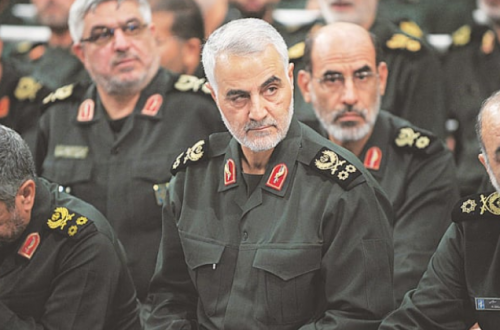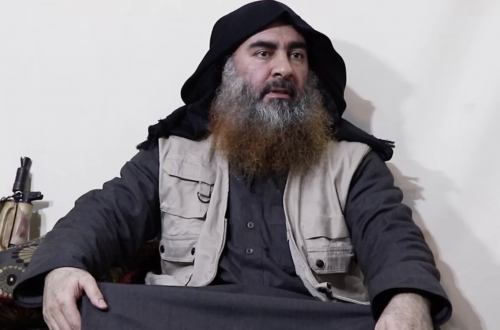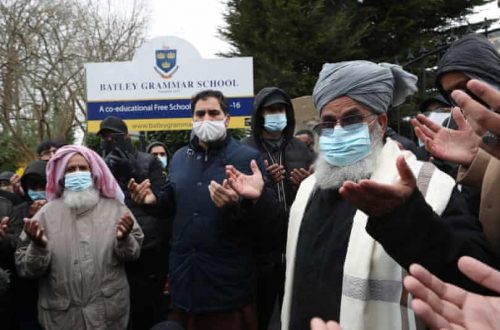Several distinct issues are raised by the practice of halal slaughter. Strict secularists may assert that it is wrong to waive any laws – such as the requirement that animals are pre-stunned – in order to cater for religious preferences. (Of course much halal meat has been pre-stunned in the UK.) Others have no problem with halal being offered as a choice, but want such meat to be clearly labelled. But here I want to focus on a claim I have often seen made: that halal slaughter funds extremism, even terrorism. I looked for an investigation of the claims but it was hard to find much online, although there are a few relevant posts on Loonwatch, and one useful report from ABC news Australia, which I’ll turn to later. Here are some preliminary thoughts, taking this post on Sharia Watch as a starting point:
“Sharia Watch UK believes that there is sufficient evidence to suggest that halal funds are, at least in part, helping to fund Islamist terrorism globally. We contend that this should, and must, be investigated by the relevant authorities.”
The article first turns its attention to North America:
“In the United States and Canada, some foods have been reportedly receiving halal certification from the Islamic Society of North America, a group which advocates sharia law and which is allegedly linked to Hamas – a terrorist group with a founding charter that calls for the killing of Jews. The Islamic Society of North America (ISNA) was co-founded by Palestinian Islamic Jihad leader Sami al-Arian. In 2007, ISNA was named by the US Government as a co-conspirator in a federal trial for transferring millions of dollars of funds to Hamas.”
I am not sure that the USA’s ISNA is particularly involved in halal certification – it is not listed here. There may be a confusion with Canada’s ISNA, a separate organisation. IFANCA seems to be the main halal certification organisation in the USA. This organisation has come in for some criticism. In an article titled ‘Baby Food Jihad’ Joe Kaufman first asserts that there is no need for halal certification as kosher food is fine for Muslims. In fact Muslims are divided on this issue – and clearly products containing alcohol may be perfectly kosher, but not halal.
This passage from Kaufman’s piece:
“Placing Muslim symbols on products is a convenient way to push Islamist culture into non-Muslim American households.”
is simply bigoted, and doesn’t inspire me with confidence in the rest of the article. However its claim that IFANCA ‘is linked to international terrorism and bigotry’ needs to be assessed. There are accusations of links with a number of allegedly dubious groups, including the Islamic Society of North America (ISNA). However this doesn’t seem particularly strong evidence, either because these dubious groups are no more than – dubious, or because the links themselves are neither strong nor direct.
Kaufman accuses one IFANCA board member of antisemitism in a pamphlet he wrote about pork.
“In it, he describes Jews as being cursed, monkey-like, filthy and corrupt.”
This is not fully accurate (although the pamphlet is certainly stupid and offensive in various other ways.)
In fact the biggest North American halal related problem is one which doesn’t seem to be on Sharia Watch’s radar, ISNA Canada. This organisation appears to be both a significant provider of halal certification and to have links – if indirectly – with extremist organisations. Its registration as a charity was revoked by the Canada Revenue Agency in 2013. However it is unclear whether it actively supported terrorist groups, or simply didn’t maintain sufficient oversight over how funds were being diverted.
Another larger Halal certifying organisation in Canada, IFANCC, seems less controversial.
France has a growing Muslim population, and halal food has been a flashpoint; the FN and even Sarkozy have sought to limit its availability. This is the most serious charge raised by Sharia Watch in relation to French halal certification:
“It is further alleged that halal certification in France is often provided by the UOIF, or Union of the Islamic Organizations in France, which according to the Simon Wiesenthal Centre has strong ties to the Muslim Brotherhood. French journalist and author Alexandre del Valle was threatened with violence when he investigated the extent of halal food in France. His investigation concluded “Nearly 60 percent of halal food is controlled by organizations belonging to the Muslim brotherhood.””
According to this guide to halal around the world, the UOIF is not a provider of halal certification. This site may explain how the confusion arose. Here it is asserted:
“When a French consumer buys Halal food, part of the price paid goes as a fee to Halal Islamic experts. Some of those experts are certified by the UOIF, the Union of the Islamic Organizations in France, which the Simon Wiesenthal Center reports has strong ties to the Muslim Brotherhood, a transnational political organization that supports terrorism.”
I am not sure that it is accurate to say part of the price of the food goes to these experts in any case. In so far as such a transaction takes place, it is in a less direct way. And as this article, debunking similar claims about kosher food, points out, there is no reason why halal food need be pricier.
I have read the following claim, quoted above in the Sharia Watch post, on a few different sites:
“When French journalist and author Alexandre del Valle began investigating how the Muslims Brotherhood was attempting a mafia-style takeover of France’s Halal food industry, his life was threatened.
“Nearly 60 percent of halal food is controlled by organizations belonging to the Muslim brotherhood,” he explained”
Frustratingly, although it’s easy to find Valle’s assertion repeated, it is much harder to track down the evidence he put forward to substantiate this claim.
A related topic which often crops up in online discussion is the charge that when you buy halal meat you contribute to a zakat (paid by the certifying organisation) which goes to fund extremist/terrorist activities. It seems unlikely that any such ‘tax’ might comprise as much as 10-15% of the price of the meat, as is claimed here.
Sites promoting this idea typically provide assertion and a certain amount of (highly circumstantial) evidence but are short on proof.
And, according to this Islamic site, money set aside for the category of those fighting for Allah, might in fact be used to establish a public water fountain or pay for the studies of a student.
Here’s a pretty level headed appraisal of many aspects of the whole controversy from ABC News (Australia). Although it debunks some of the more fanciful claims about halal, the report does reveal some links between a key certification organisation and dubious funding. Halal Australia donates a fraction of its profits to a range of charities. Some are unexceptionable, but Islamic Relief would be seen by many as controversial.
Finally – the UK. Sharia Watch objects to the Muslim Food Board because it is affiliated to the Muslim Law (Shariah) Council UK. I can’t track down any verification for that statement, but clearly there are problems with British Shariah councils.
Sharia Watch doesn’t seem to have found anything very dodgy about the Halal Food Authority or the Halal Monitoring Committee, although it does criticise the latter group for organising many male only or segregated events.
To conclude, it seems that many claims about halal certification and extremism are exaggerated or unproven, although others seem to have at least some foundation. Of course there is nothing unique about all this. Suspect organisations receive funds from a range of sources, including Western governments. And Saudi Arabia receives a good deal of support from our own government, of one kind or another.
Whatever the problems with some certificating bodies, there seems no intrinsic reason why buying halal food should be problematic, or more problematic than buying kosher meat. Of course some would disagree with this
Sharia goes way beyond food and halal but the point we want to make here is that all of the halal certification organisations are operating under sharia law and desire for sharia law to be accepted as a part of our mainstream society
However there are many different ways of interpreting and implementing halal requirements – these British farmers place great emphasis on animal welfare and choose not to seek official certification for their meat.
If you try to find out more about the relationship between the halal industry and extremism you soon find yourself on some pretty hateful sites. This may deter people (Muslim or not) from engaging with the issue. An exception is OHPI. Unusually, although it is seriously concerned about anti-Muslim bigotry, it doesn’t ignore the criticisms levelled at the halal industry, even though it thinks some of them are driven by hate. It advises that Halal Certification Authorities be transparent and clear on their fee structures to help avoid hate spreading through ignorance.


